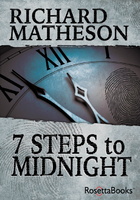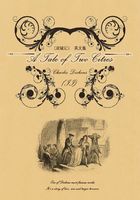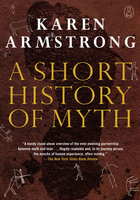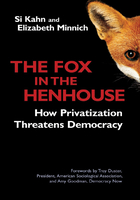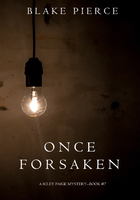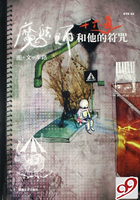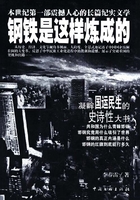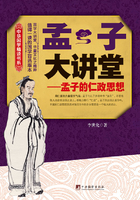By this Friday night-for it was on Friday in the riot week, that Emma and Dolly were rescued, by the timely aid of Joe and Edward Chester-the disturbances were entirely quelled, and peace and order were restored to the affrighted city. True, after what had happened, it was impossible for any man to say how long this better state of things might last, or how suddenly new outrages, exceeding even those so lately witnessed, might burst forth and fill its streets with ruin and bloodshed; for this reason, those who had fled from the recent tumults still kept at a distance, and many families, hitherto unable to procure the means of flight, now availed themselves of the calm, and withdrew into the country. The shops, too, from Tyburn to Whitechapel, were still shut; and very little business was transacted in any of the places of great commercial resort. But, notwithstanding, and in spite of the melancholy forebodings of that numerous class of society who see with the greatest clearness into the darkest perspectives, the town remained profoundly quiet. The strong military force disposed in every advantageous quarter, and stationed at every commanding point, held the scattered fragments of the mob in check; the search after rioters was prosecuted with unrelenting vigour; and if there were any among them so desperate and reckless as to be inclined, after the terrible scenes they had beheld, to venture forth again, they were so daunted by these resolute measures, that they quickly shrunk into their hiding-places, and had no thought but for their safety.
In a word, the crowd was utterly routed. Upwards of two hundred had been shot dead in the streets. Two hundred and fifty more were lying, badly wounded, in the hospitals; of whom seventy or eighty died within a short time afterwards. A hundred were already in custody, and more were taken every hour. How many perished in the conflagrations, or by their own excesses, is unknown; but that numbers found a terrible grave in the hot ashes of the flames they had kindled, or crept into vaults and cellars to drink in secret or to nurse their sores, and never saw the light again, is certain. When the embers of the fires had been black and cold for many weeks, the labourers' spades proved this, beyond a doubt.
Seventy-two private houses and four strong jails were destroyed in the four great days of these riots. The total loss of property, as estimated by the sufferers, was one hundred and fifty-five thousand pounds; at the lowest and least partial estimate of disinterested persons, it exceeded one hundred and twenty-five thousand pounds. For this immense loss, compensation was soon afterwards made out of the public purse, in pursuance of a vote of the House of Commons; the sum being levied on the various wards in the city, on the county, and the borough of Southwark. Both Lord Mansfield and Lord Saville, however, who had been great sufferers, refused to accept of any compensation whatever.
The House of Commons, sitting on Tuesday with locked and guarded doors, had passed a resolution to the effect that, as soon as the tumults subsided, it would immediately proceed to consider the petitions presented from many of his Majesty's Protestant subjects, and would take the same into its serious consideration. While this question was under debate, Mr Herbert, one of the members present, indignantly rose and called upon the House to observe that Lord George Gordon was then sitting under the gallery with the blue cockade, the signal of rebellion, in his hat. He was not only obliged, by those who sat near, to take it out; but offering to go into the street to pacify the mob with the somewhat indefinite assurance that the House was prepared to give them 'the satisfaction they sought,' was actually held down in his seat by the combined force of several members. In short, the disorder and violence which reigned triumphant out of doors, penetrated into the senate, and there, as elsewhere, terror and alarm prevailed, and ordinary forms were for the time forgotten.
On the Thursday, both Houses had adjourned until the following Monday se'nnight, declaring it impossible to pursue their deliberations with the necessary gravity and freedom, while they were surrounded by armed troops. And now that the rioters were dispersed, the citizens were beset with a new fear; for, finding the public thoroughfares and all their usual places of resort filled with soldiers entrusted with the free use of fire and sword, they began to lend a greedy ear to the rumours which were afloat of martial law being declared, and to dismal stories of prisoners having been seen hanging on lamp-posts in Cheapside and Fleet Street. These terrors being promptly dispelled by a Proclamation declaring that all the rioters in custody would be tried by a special commission in due course of law, a fresh alarm was engendered by its being whispered abroad that French money had been found on some of the rioters, and that the disturbances had been fomented by foreign powers who sought to compass the overthrow and ruin of England. This report, which was strengthened by the diffusion of anonymous handbills, but which, if it had any foundation at all, probably owed its origin to the circumstance of some few coins which were not English money having been swept into the pockets of the insurgents with other miscellaneous booty, and afterwards discovered on the prisoners or the dead bodies,-caused a great sensation; and men's minds being in that excited state when they are most apt to catch at any shadow of apprehension, was bruited about with much industry.
All remaining quiet, however, during the whole of this Friday, and on this Friday night, and no new discoveries being made, confidence began to be restored, and the most timid and desponding breathed again. In Southwark, no fewer than three thousand of the inhabitants formed themselves into a watch, and patrolled the streets every hour. Nor were the citizens slow to follow so good an example: and it being the manner of peaceful men to be very bold when the danger is over, they were abundantly fierce and daring; not scrupling to question the stoutest passenger with great severity, and carrying it with a very high hand over all errand- boys, servant-girls, and 'prentices.
As day deepened into evening, and darkness crept into the nooks and corners of the town as if it were mustering in secret and gathering strength to venture into the open ways, Barnaby sat in his dungeon, wondering at the silence, and listening in vain for the noise and outcry which had ushered in the night of late. Beside him, with his hand in hers, sat one in whose companionship he felt at peace. She was worn, and altered, full of grief, and heavy-hearted; but the same to him.
'Mother,' he said, after a long silence: 'how long,-how many days and nights,-shall I be kept here?'
'Not many, dear. I hope not many.'
'You hope! Ay, but your hoping will not undo these chains. I hope, but they don't mind that. Grip hopes, but who cares for Grip?'
The raven gave a short, dull, melancholy croak. It said 'Nobody,' as plainly as a croak could speak.
'Who cares for Grip, except you and me?' said Barnaby, smoothing the bird's rumpled feathers with his hand. 'He never speaks in this place; he never says a word in jail; he sits and mopes all day in his dark corner, dozing sometimes, and sometimes looking at the light that creeps in through the bars, and shines in his bright eye as if a spark from those great fires had fallen into the room and was burning yet. But who cares for Grip?'
The raven croaked again-Nobody.
'And by the way,' said Barnaby, withdrawing his hand from the bird, and laying it upon his mother's arm, as he looked eagerly in her face; 'if they kill me-they may: I heard it said they would-what will become of Grip when I am dead?'
The sound of the word, or the current of his own thoughts, suggested to Grip his old phrase 'Never say die!' But he stopped short in the middle of it, drew a dismal cork, and subsided into a faint croak, as if he lacked the heart to get through the shortest sentence.
'Will they take his life as well as mine?' said Barnaby. 'I wish they would. If you and I and he could die together, there would be none to feel sorry, or to grieve for us. But do what they will, I don't fear them, mother!'
'They will not harm you,' she said, her tears choking her utterance. 'They never will harm you, when they know all. I am sure they never will.'
'Oh! Don't be too sure of that,' cried Barnaby, with a strange pleasure in the belief that she was self-deceived, and in his own sagacity. 'They have marked me from the first. I heard them say so to each other when they brought me to this place last night; and I believe them. Don't you cry for me. They said that I was bold, and so I am, and so I will be. You may think that I am silly, but I can die as well as another.-I have done no harm, have I?' he added quickly.
'None before Heaven,' she answered.
'Why then,' said Barnaby, 'let them do their worst. You told me once-you-when I asked you what death meant, that it was nothing to be feared, if we did no harm-Aha! mother, you thought I had forgotten that!'
His merry laugh and playful manner smote her to the heart. She drew him closer to her, and besought him to talk to her in whispers and to be very quiet, for it was getting dark, and their time was short, and she would soon have to leave him for the night.
'You will come to-morrow?' said Barnaby.
Yes. And every day. And they would never part again.
He joyfully replied that this was well, and what he wished, and what he had felt quite certain she would tell him; and then he asked her where she had been so long, and why she had not come to see him when he had been a great soldier, and ran through the wild schemes he had had for their being rich and living prosperously, and with some faint notion in his mind that she was sad and he had made her so, tried to console and comfort her, and talked of their former life and his old sports and freedom: little dreaming that every word he uttered only increased her sorrow, and that her tears fell faster at the freshened recollection of their lost tranquillity.
'Mother,' said Barnaby, as they heard the man approaching to close the cells for the night,' when I spoke to you just now about my father you cried "Hush!" and turned away your head. Why did you do so? Tell me why, in a word. You thought he was dead. You are not sorry that he is alive and has come back to us. Where is he? Here?'
'Do not ask any one where he is, or speak about him,' she made answer.
'Why not?' said Barnaby. 'Because he is a stern man, and talks roughly? Well! I don't like him, or want to be with him by myself; but why not speak about him?'
'Because I am sorry that he is alive; sorry that he has come back; and sorry that he and you have ever met. Because, dear Barnaby, the endeavour of my life has been to keep you two asunder.'
'Father and son asunder! Why?'
'He has,' she whispered in his ear, 'he has shed blood. The time has come when you must know it. He has shed the blood of one who loved him well, and trusted him, and never did him wrong in word or deed.'
Barnaby recoiled in horror, and glancing at his stained wrist for an instant, wrapped it, shuddering, in his dress.
'But,' she added hastily as the key turned in the lock, 'although we shun him, he is your father, dearest, and I am his wretched wife. They seek his life, and he will lose it. It must not be by our means; nay, if we could win him back to penitence, we should be bound to love him yet. Do not seem to know him, except as one who fled with you from the jail, and if they question you about him, do not answer them. God be with you through the night, dear boy! God be with you!'
She tore herself away, and in a few seconds Barnaby was alone. He stood for a long time rooted to the spot, with his face hidden in his hands; then flung himself, sobbing, on his miserable bed.
But the moon came slowly up in all her gentle glory, and the stars looked out, and through the small compass of the grated window, as through the narrow crevice of one good deed in a murky life of guilt, the face of Heaven shone bright and merciful. He raised his head; gazed upward at the quiet sky, which seemed to smile upon the earth in sadness, as if the night, more thoughtful than the day, looked down in sorrow on the sufferings and evil deeds of men; and felt its peace sink deep into his heart. He, a poor idiot, caged in his narrow cell, was as much lifted up to God, while gazing on the mild light, as the freest and most favoured man in all the spacious city; and in his ill-remembered prayer, and in the fragment of the childish hymn, with which he sung and crooned himself asleep, there breathed as true a spirit as ever studied homily expressed, or old cathedral arches echoed.
As his mother crossed a yard on her way out, she saw, through a grated door which separated it from another court, her husband, walking round and round, with his hands folded on his breast, and his head hung down. She asked the man who conducted her, if she might speak a word with this prisoner. Yes, but she must be quick for he was locking up for the night, and there was but a minute or so to spare. Saying this, he unlocked the door, and bade her go in.
It grated harshly as it turned upon its hinges, but he was deaf to the noise, and still walked round and round the little court, without raising his head or changing his attitude in the least. She spoke to him, but her voice was weak, and failed her. At length she put herself in his track, and when he came near, stretched out her hand and touched him.
He started backward, trembling from head to foot; but seeing who it was, demanded why she came there. Before she could reply, he spoke again.
'Am I to live or die? Do you murder too, or spare?'
'My son-our son,' she answered, 'is in this prison.'
'What is that to me?' he cried, stamping impatiently on the stone pavement. 'I know it. He can no more aid me than I can aid him. If you are come to talk of him, begone!'
As he spoke he resumed his walk, and hurried round the court as before. When he came again to where she stood, he stopped, and said,
'Am I to live or die? Do you repent?'
'Oh!-do you?' she answered. 'Will you, while time remains? Do not believe that I could save you, if I dared.'
'Say if you would,' he answered with an oath, as he tried to disengage himself and pass on. 'Say if you would.'
'Listen to me for one moment,' she returned; 'for but a moment. I am but newly risen from a sick-bed, from which I never hoped to rise again. The best among us think, at such a time, of good intentions half-performed and duties left undone. If I have ever, since that fatal night, omitted to pray for your repentance before death-if I omitted, even then, anything which might tend to urge it on you when the horror of your crime was fresh-if, in our later meeting, I yielded to the dread that was upon me, and forgot to fall upon my knees and solemnly adjure you, in the name of him you sent to his account with Heaven, to prepare for the retribution which must come, and which is stealing on you now-I humbly before you, and in the agony of supplication in which you see me, beseech that you will let me make atonement.'
'What is the meaning of your canting words?' he answered roughly. 'Speak so that I may understand you.'
'I will,' she answered, 'I desire to. Bear with me for a moment more. The hand of Him who set His curse on murder, is heavy on us now. You cannot doubt it. Our son, our innocent boy, on whom His anger fell before his birth, is in this place in peril of his life- brought here by your guilt; yes, by that alone, as Heaven sees and knows, for he has been led astray in the darkness of his intellect, and that is the terrible consequence of your crime.'
'If you come, woman-like, to load me with reproaches-' he muttered, again endeavouring to break away.
'I do not. I have a different purpose. You must hear it. If not to-night, to-morrow; if not to-morrow, at another time. You must hear it. Husband, escape is hopeless-impossible.'
'You tell me so, do you?' he said, raising his manacled hand, and shaking it. 'You!'
'Yes,' she said, with indescribable earnestness. 'But why?'
'To make me easy in this jail. To make the time 'twixt this and death, pass pleasantly. For my good-yes, for my good, of course,' he said, grinding his teeth, and smiling at her with a livid face.
'Not to load you with reproaches,' she replied; 'not to aggravate the tortures and miseries of your condition, not to give you one hard word, but to restore you to peace and hope. Husband, dear husband, if you will but confess this dreadful crime; if you will but implore forgiveness of Heaven and of those whom you have wronged on earth; if you will dismiss these vain uneasy thoughts, which never can be realised, and will rely on Penitence and on the Truth, I promise you, in the great name of the Creator, whose image you have defaced, that He will comfort and console you. And for myself,' she cried, clasping her hands, and looking upward, 'I swear before Him, as He knows my heart and reads it now, that from that hour I will love and cherish you as I did of old, and watch you night and day in the short interval that will remain to us, and soothe you with my truest love and duty, and pray with you, that one threatening judgment may be arrested, and that our boy may be spared to bless God, in his poor way, in the free air and light!'
He fell back and gazed at her while she poured out these words, as though he were for a moment awed by her manner, and knew not what to do. But anger and fear soon got the mastery of him, and he spurned her from him.
'Begone!' he cried. 'Leave me! You plot, do you! You plot to get speech with me, and let them know I am the man they say I am. A curse on you and on your boy.'
'On him the curse has already fallen,' she replied, wringing her hands.
'Let it fall heavier. Let it fall on one and all. I hate you both. The worst has come to me. The only comfort that I seek or I can have, will be the knowledge that it comes to you. Now go!'
She would have urged him gently, even then, but he menaced her with his chain.
'I say go-I say it for the last time. The gallows has me in its grasp, and it is a black phantom that may urge me on to something more. Begone! I curse the hour that I was born, the man I slew, and all the living world!'
In a paroxysm of wrath, and terror, and the fear of death, he broke from her, and rushed into the darkness of his cell, where he cast himself jangling down upon the stone floor, and smote it with his ironed hands. The man returned to lock the dungeon door, and having done so, carried her away.
On that warm, balmy night in June, there were glad faces and light hearts in all quarters of the town, and sleep, banished by the late horrors, was doubly welcomed. On that night, families made merry in their houses, and greeted each other on the common danger they had escaped; and those who had been denounced, ventured into the streets; and they who had been plundered, got good shelter. Even the timorous Lord Mayor, who was summoned that night before the Privy Council to answer for his conduct, came back contented; observing to all his friends that he had got off very well with a reprimand, and repeating with huge satisfaction his memorable defence before the Council, 'that such was his temerity, he thought death would have been his portion.'
On that night, too, more of the scattered remnants of the mob were traced to their lurking-places, and taken; and in the hospitals, and deep among the ruins they had made, and in the ditches, and fields, many unshrouded wretches lay dead: envied by those who had been active in the disturbances, and who pillowed their doomed heads in the temporary jails.
And in the Tower, in a dreary room whose thick stone walls shut out the hum of life, and made a stillness which the records left by former prisoners with those silent witnesses seemed to deepen and intensify; remorseful for every act that had been done by every man among the cruel crowd; feeling for the time their guilt his own, and their lives put in peril by himself; and finding, amidst such reflections, little comfort in fanaticism, or in his fancied call; sat the unhappy author of all-Lord George Gordon.
He had been made prisoner that evening. 'If you are sure it's me you want,' he said to the officers, who waited outside with the warrant for his arrest on a charge of High Treason, 'I am ready to accompany you-' which he did without resistance. He was conducted first before the Privy Council, and afterwards to the Horse Guards, and then was taken by way of Westminster Bridge, and back over London Bridge (for the purpose of avoiding the main streets), to the Tower, under the strongest guard ever known to enter its gates with a single prisoner.
Of all his forty thousand men, not one remained to bear him company. Friends, dependents, followers,-none were there. His fawning secretary had played the traitor; and he whose weakness had been goaded and urged on by so many for their own purposes, was desolate and alone.

